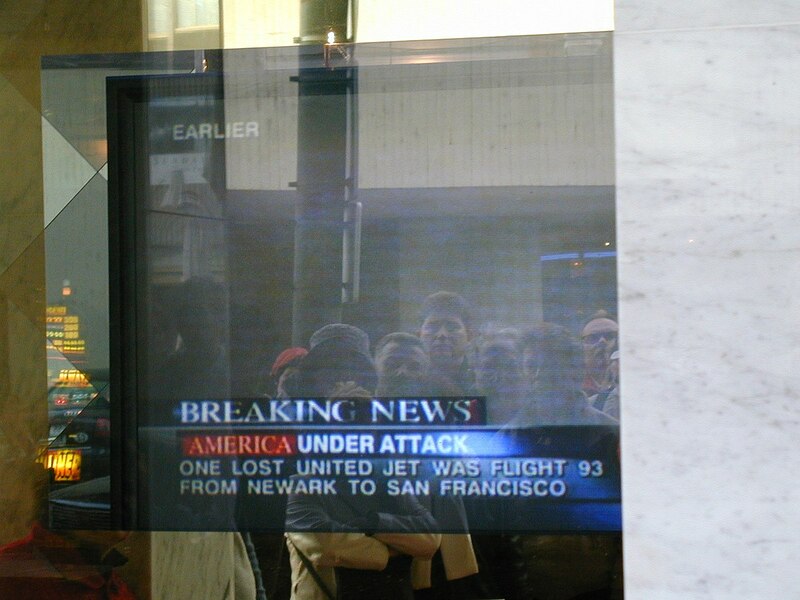American Mindset After 9/11
American mindset was greatly affected following the terrorist attacks on September 11, 2001 and new American thought precedents formed almost immediately after the event. Americans no longer felt safe in their homes, they doubted whether the United States world power could protect them, and they began forming opinions and biases solely based off of this one terroristic event. Only minutes after the terrorist attacks on 9/11 did four men begin chasing a Sikh man who had just narrowly escaped the loss of his life in the towers.1
The narrative became that anyone who was perceived by Americans to look similar, originate from a similar place, or wear religious headpieces similar to Osama Bin Laden was a terrorist.2 Men face the brunt of this racism as they are often the ones who wear turbins similar to Osama Bin Laden's; however, plenty of women also faced this issue, especially those wearing religous headpieces.3
The American mindset had become so skewed by the attacks from 9/11 that much of this terroristic racist thought still prevails today. It is argued that the racism, obsession with memorialization, and calls for stronger terrorist laws culminated in the events of the Black Lives Matters movement with one side fighting for a stronger police system and the other side arguing for the police system to be defunded.4 The figures representing the confederacy, racist monuments, and the narrative of terroristic racism are still being fought against and debunked to this day--this conflict truly represents the lasting impact on memory that public history events hold.5
1. Vijay Prashad, “How the Hindus Became Jews: American Racism after 9/11,” South Atlantic Quarterly 104, no. 3 (2005): pp. 584.
2. Ibid, pp. 584.
3. Ibid, pp. 584-585.
4. Marita Sturken, Terrorism in American Memory: Memorials, Museums, and Architecture in the Post-9/11 Era (New York University Press, 2022), pp. 2.
5. Ibid, pp. 2-3.

